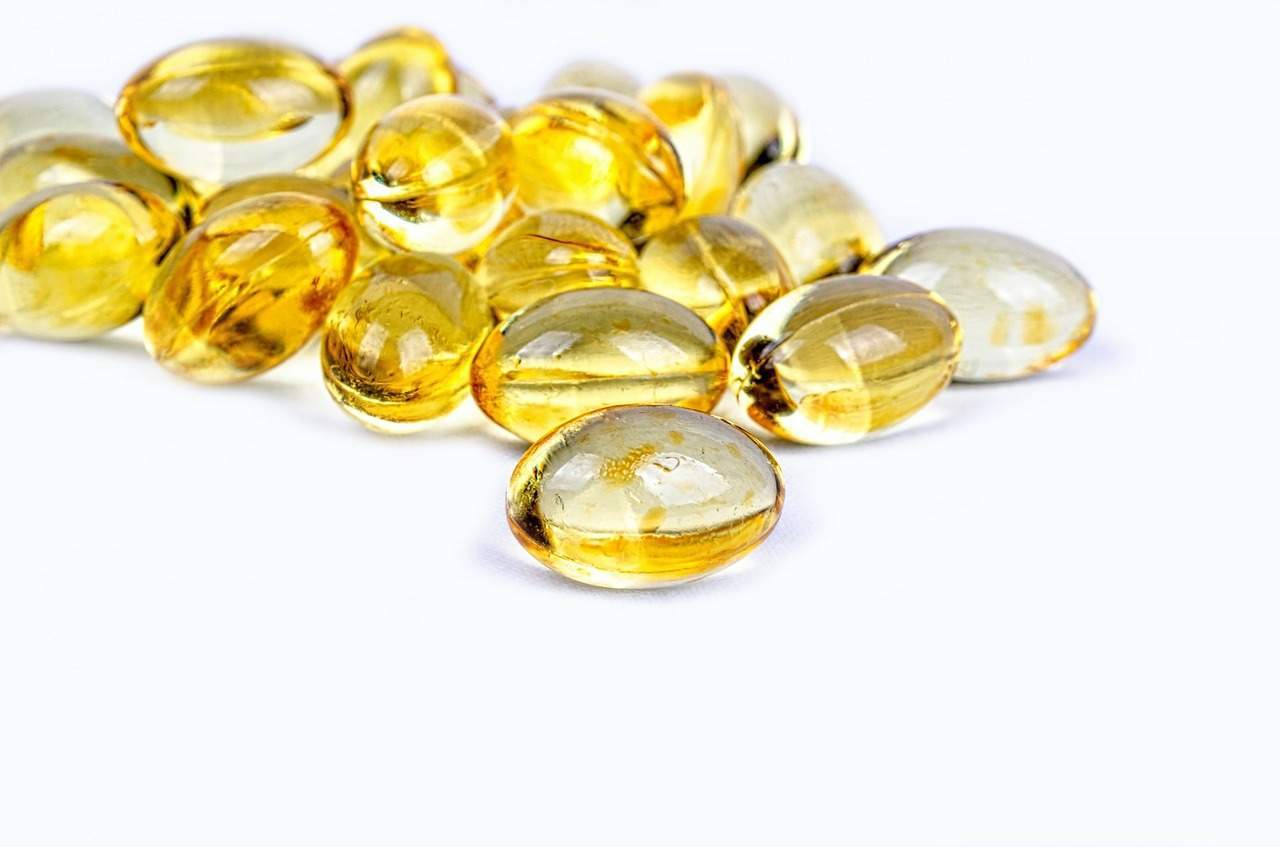Are You Taking Omega-3s and a Blood Thinner? You’re Not Alone.
The latest analysis of Americans’ use of prescription drugs, over-the-counter drugs, and dietary supplements, was just published in JAMA Internal Medicine on March 21, 2016. The researchers looked at what Americans, aged 62 and older, were taking more of in 2011 than in 2005.
Because 1 in 3 older adults takes 5 or more prescription medications, and 2 in 3 older adults takes both prescription and over-the-counter (OTC) medications, and also uses dietary supplements, the researchers looked at the risk for adverse reactions due to interactions among prescription medications, prescription and OTC medications, and also among medications and supplements.
What they found:
- 15% of older Americans are taking prescription and OTC medications with the potential for a major drug-drug interaction.
- More older Americans are taking statins (usage has increased from 33.8% to 46.2%), anti-platelet drugs (32.8% to 43.0%), NSAIDs (10.1%to 13.7%), and proton pump inhibitors, (e.g. omeprazole [Prilosec]) (15.7% to 18.5%).
- Most potentially harmful interactions involve the following drugs:
- Anti-platelet drugs, e.g., aspirin, Plavix
- Anticoagulants, e.g., warfarin
- Statins, e.g., Zocor, Lipitor
- Proton pump inhibitors, which prevent stomach acid production, e.g., Prilosec
- Nonsteroidal anti-inflammatory drugs (NSAIDs), e.g., aspirin, naproxen sodium (Aleve), ibuprofen (Advil).
- The most common interacting drug regimen was the use of both amlodipine (Besylate), a blood pressure-lowering medication, along with the statin drug, simvastatin (Zocor), a cholesterol-lowering medication. Taking these drugs concurrently significantly increases risk for myopathy (muscle damage, weakness & loss of function).
- Another frequently seen drug combination, and this one is potentially fatal, was the concurrent use of aspirin along with the anti-clotting agent, clopidogrel (Plavix). This drug combination has been found to increase risk of nonfatal and fatal bleeding by 84%.(1)
If you are taking any of these drug combinations, please check in with your doctor immediately!
Looking at supplements:
- The number of older Americans taking omega-3 fish oils and vitamin D increased greatly.
- Use of supplemental omega-3 fish oils increased fourfold (from 4.7% to 18.6%)
- Use of supplemental vitamin D increased threefold (from 4.6% to 15.6%)
- The number of people taking warfarin remained stable, but since more of us are taking omega-3 fish oil supplements, the number of people taking both warfarin and omega-3 supplements has increased (from 0.1% to 0.8%).
As a result, you may have seen news articles suggesting that taking omega-3s along with warfarin might increase risk for bleeding. Is this cause for concern?
Bottom line: Both warfarin and omega-3s prevent excessive blood clot formation. For this reason, when both are used, an additive effect is theoretically possible. If you are taking warfarin and are also taking an omega-3 supplement, check with your doctor.
- In individuals taking warfarin, high doses of supplemental omega-3s may increase risk of bleeding. This is a theoretical concern based not on actual human studies, but simply on the fact that warfarin and omega-3s exert different anti-clotting effects.
- 2 case reports have been published, one in 2004 and another in 2007, each letting doctors know that an individual taking both warfarin and omega-3s experienced an increase in his or her INR. (INR is a measurement of how quickly blood clots, and the preferred range for people taking warfarin is 2-3. When the dose of warfarin is too high, blood does not clot quickly enough, increasing risk of bleeding.) Neither of the individuals in these 2 case reports experienced an actual bleeding episode. Both ceased taking supplemental omega-3s, and their INR quickly dropped. (The full details of both case reports are provided below, along with an explanation of why omega-3s help prevent excessive blood clot formation.)
- If you are not taking warfarin, a number of studies (discussed below) have confirmed that omega-3s do not increase risk of bleeding.
- As noted above, the combination of aspirin along with the anti-clotting agent, clopidogrel (Plavix), greatly increases bleeding risk. Omega-3s are so safe that adding high-dose fish oil to the combination of aspirin and Plavix does not increase the risk of bleeding compared to that seen with aspirin and clopidogrel alone.(2)
- If you are taking warfarin, this latest article in JAMA Internal Medicine alerting doctors to the potential for adverse effects caused by this drug provides yet one more reason to ask your doctor about switching from warfarin to one of the newer anti-coagulant drugs now available: the Factor Xa inhibitors (e.g., rivaroxaban, apixaban) or the direct thrombin inhibitor, dabigatran. (For additional reasons why warfarin is bad for your bones and your cardiovascular system, see Vitamin K’s only safety issue — if you are taking Warfarin, you must avoid Vitamin K2)
Two Case Reports Suggest Warfarin + Omega-3s May Increase Risk of Bleeding
First case report, 2004:
When this patient was taking 1,000 milligrams (1 gram) of fish oil daily along with warfarin at a dose of 1.5 milligrams/day, her INR (International Normalised Ratio – the test used to measure the effects of warfarin) remained in good range for 5 months. When she doubled her fish oil dose from 1,000 to 2,000 milligrams/day (from 1 to 2 grams/day), her INR increased from 2.8 to 4.3 within 1 month. The desirable INR range when taking warfarin is 2-3.
Within one week of lowering her fish oil intake to 1,500 milligrams (1.5 grams)/day, her INR decreased to 1.6. She was then returned to her original warfarin dose. According to the doctor providing the case report: “This case report illustrates that fish oil can provide additive anticoagulant effects when given with warfarin.”
In other words, the warfarin dose may be able to be reduced if also taking fish oil. It’s a mystery to me that her doctor lowered her dose of fish oils to keep her at the same dose of warfarin. Why not lower the dose of the drug, which has numerous adverse effects, and keep the higher dose of omega-3s, which have numerous beneficial effects?(3)
Second case report, 2011:
This was a 65-year-old Caucasian man who had been taking warfarin for 6 months. Warfarin was prescribed after a clot formed in his lungs when he underwent surgery for prostate cancer. Soon after, he was given prescriptions for trazodone, an antidepressant with sleep-inducing effects, and for a fish oil supplement for “not-very-well defined complaints” (apologies, but this is all the information that was provided). Two weeks after taking all three medications, he arrived at the Emergency Department with an INR test result of 8.06. He was admitted for observation, and all medications were discontinued. His INR returned to normal within 2 days. He was then restarted on his previous warfarin dose, but neither trazodone nor omega-3s were restarted. Two weeks later, his coagulation profile had remained within the desired therapeutic range. This case illustrates a possible interaction between warfarin, trazadone and omega-3s.
Trazodone is known to interact with warfarin, but how it does so is not well-understood. Both warfarin and omega-3s have anti-coagulant effects. For this reason, when both are used, an additive effect is possible, and you may be able to lower your dose of warfarin when taking an omega-3 supplement. The different mechanisms through which warfarin and omega-3s prevent excessive blot clot formation are explained next.
Omega-3s Prevent Excessive Blood Clot Formation in 2 Ways
First, when present in sufficient amounts to result in a ratio of omega-6: omega-3 of at least 4:1, the anti-inflammatory omega-3 fatty acids, EPA and DHA may replace some of the pro-inflammatory omega-6 fatty acid, arachidonic acid (AA), in the cell membranes of platelets. When this happens, less AA is available for conversion into AA’s highly pro-inflammatory offspring, thromboxane A2, which causes platelets to clump together and form a clot.
Secondly, fish oil lowers levels of triglycerides by 6-8%. Triglycerides are fatty acid-containing molecules that transport vitamin K1 in the bloodstream. Vitamin K1 is preferentially used to activate several key enzymes in the blood clotting cascade (prothrombin, for example). So, lowering levels of triglycerides leads to less vitamin K1 delivered and less likelihood of excessive activation of blood clotting factors.(4)
Warfarin works differently. This drug blocks the activity of the enzyme that recycles vitamin K, thus shutting down vitamin K recycling. This results in greatly lowered levels of vitamin K, which prevents the activation of prothrombin. Unfortunately, by preventing vitamin K recycling, warfarin also prevents vitamin K from activating osteocalcin, the protein responsible for putting calcium into your bones, and matrix Gla protein, the protein responsible for keeping calcium from depositing in your blood vessels, such as those in your arteries, heart, and kidneys. Omega-3s also lessen prothrombin activation, but do so without preventing vitamin K from doing its’ many jobs, including activating osteocalcin and matrix Gla protein.
Since both warfarin and omega-3s have anti-clotting effects, you can see why omega-3s might increase risk of bleeding when taken with warfarin. And a review article discussing the numerous beneficial effects of omega-3 fatty acids in individuals with cardiovascular disease, suggested that omega-3s, in doses greater than 3– 4 grams per day (3,000 – 4,000 milligrams per day), might produce a moderate increase in INR.(5) But the evidence from actual clinical trials indicates this concern has no substance.
Clinical Trials Show Omega-3s Do Not Increase Risk of Bleeding Even If Combined With Aspirin or Warfarin
Clinical trials do not show increased bleeding from omega-3s, even when combined with agents that might increase bleeding, such as aspirin and warfarin.(6)
 Recently, a systematic review of randomized control trials (RCT) was conducted using Medline and a variety of other electronic sources to evaluate omega-3s’ potential for causing severe adverse events, such as bleeding, and non-severe adverse events (such as gastrointestinal discomfort) in older adults.
Recently, a systematic review of randomized control trials (RCT) was conducted using Medline and a variety of other electronic sources to evaluate omega-3s’ potential for causing severe adverse events, such as bleeding, and non-severe adverse events (such as gastrointestinal discomfort) in older adults.
Ten studies were found, involving 994 adults aged 60 years or older, and were analyzed. Six of the 10 studies included older adults taking anti-coagulant, anti-platelet medications, including aspirin and warfarin. Daily fish oil doses ranged from 300 milligrams to 1,860 milligrams of EPA and/or DHA. The length of the studies varied from 6 to 52 weeks.
Not a single severe adverse event was reported. Gastrointestinal (GI) disturbances were the most commonly reported complaint. GI disturbances were reported in 42 of the 540 participants randomized to take omega-3s (or 7.8% of them) and in 24 of the 454 study participants randomized to receive a placebo (or 5.3% of them).
Here’s a quote from this systematic review: “The potential for adverse events appear mild-moderate at worst and are unlikely to be of clinical significance…Regardless of the previous speculation, current evidence has shown that omega-3 supplementation at doses of 4 grams or less per day, even when concurrently administered with antiplatelet or anticoagulant medications, are safe for general consumption.”(7)
You should always discuss the potential for interactions among any drugs or supplements you are taking with your doctor, but omega-3 fish oil supplements are highly unlikely to be of concern.
Sources:
- Hansen ML, Sørensen R, Clausen MT, et al. Risk of bleeding with single, dual, or triple therapy with warfarin, aspirin, and clopidogrel in patients with atrial fibrillation. Arch Intern Med. 2010 Sep 13;170(16):1433-41. doi: 10.1001/archinternmed.2010.271. PMID: 20837828
- Watson PD, Joy PS, Nkonde C, et al. Comparison of bleeding complications with omega-3 fatty acids + aspirin + clopidogrel–versus–aspirin + clopidogrel in patients with cardiovascular disease. Am J Cardiol. 2009 Oct 15;104(8):1052-4. doi: 10.1016/j.amjcard.2009.05.055. Epub 2009 Aug 25. PMID: 19801023
- Buckley MS, Goff AD, Knapp WE. Fish oil interaction with warfarin. Ann Pharmacother. 2004 Jan;38(1):50-2. PMID: 14742793
- Jalili M, Dehpour AR. Extremely prolonged INR associated with warfarin in combination with both trazodone and omega-3 fatty acids. Arch Med Res. 2007 Nov;38(8):901-4. Epub 2007 Aug 23. PMID: 17923275
- Holub BJ. Clinical nutrition: 4. Omega-3 fatty acids in cardiovascular care. CMAJ. 2002 Mar 5;166(5):608-15. PMID: 11898942
- Bays HE. Safety considerations with omega-3 fatty acid therapy. Am J Cardiol. 2007 Mar 19;99(6A):35C-43C. Epub 2006 Nov 28. PMID: 17368277
Harris WS. Expert opinion: omega-3 fatty acids and bleeding-cause for concern? Comment on: Safety considerations with omega-3 fatty acid therapy. [Am J Cardiol. 2007] PMID: 17368278 - Villani AM, Crotty M, Cleland LG, et al. Fish oil administration in older adults: is there potential for adverse events? A systematic review of the literature. BMC Geriatr. 2013 May 1;13:41. doi: 10.1186/1471-2318-13-41. PMID: 23634646





Helen Davis
March 29, 2016 , 9:10 amYou have certainly sent us a wealth of information recently and I do appreciate it. I’ll have to read it again and again to fully digest it all. I do take aspirin for arthritis pain and have for almost 30 years. (I’m 76) Today’s information is reassuring.